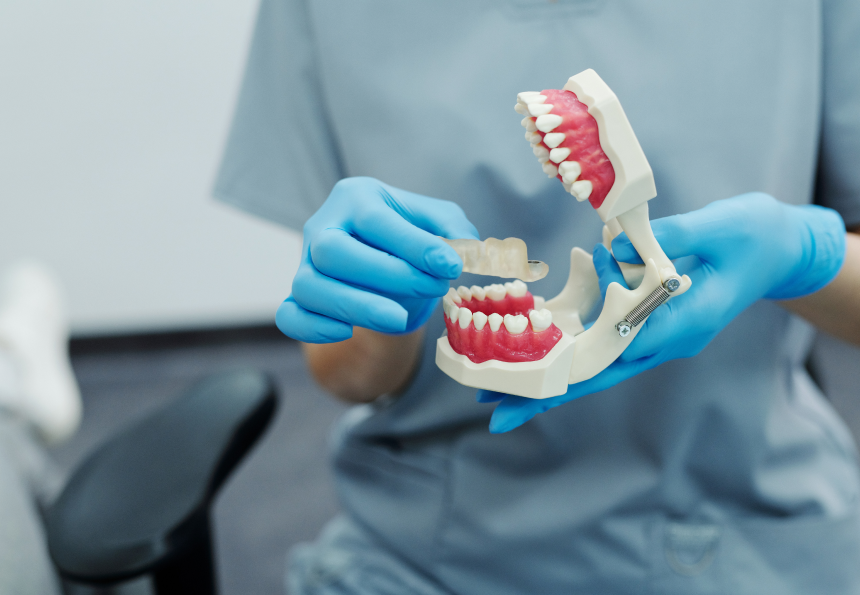Meet Your Pleasant Community Dentist Eugene OR and Their Solutions
Meet Your Pleasant Community Dentist Eugene OR and Their Solutions
Blog Article
Learn More About Constant Oral Issues Your Dental Expert Can Deal With
Comprehending frequent dental problems is critical for preserving optimal dental health. Issues such as dental caries, gum tissue illness, tooth sensitivity, negative breath, and dental cavity are common yet frequently ignored up until they come to be serious. Dental experts have the expertise to detect and treat these conditions, thereby avoiding additional issues. Normal oral brows through and individualized care strategies can attend to these problems properly, ensuring a much healthier and brighter smile. Yet what details therapies do dental practitioners utilize to fight these concerns, and just how can early treatment make a difference? The response to these concerns use important understandings right into securing your dental wellness.
Cavities
Tooth cavities, also referred to as tooth decays, are a prevalent dental health and wellness problem brought on by the demineralization of tooth enamel as a result of acid production from microbial plaque. This process begins when germs in the mouth metabolize sugars and starches from food, creating acids that deteriorate the enamel. If not attended to promptly, this erosion can permeate much deeper into the tooth, impacting the dentin and eventually the pulp, potentially causing extreme pain and infection.
The beginning of dental caries formation frequently present as white areas on the tooth surface, showing initial demineralization. As the procedure proceeds, these areas can become black or brownish sores, symbolizing more comprehensive degeneration. Routine dental exams are essential for very early detection, as dental caries in their inceptive stages can be treated with remineralization techniques, such as fluoride therapies.
Dentists usually get rid of the decayed part of the tooth and fill up the cavity with products such as composite resin, amalgam, or ceramic. Preventative measures, consisting of excellent oral health practices and dietary adjustments, play an essential role in reducing the risk of dental caries.
Gum Disease
While cavities stand for a considerable issue for oral health and wellness, another essential problem that demands attention is gum disease. Additionally called gum illness, gum tissue condition is an inflammatory problem influencing the tissues surrounding and sustaining the teeth. It is mostly brought on by the accumulation of plaque-- a sticky movie of germs that creates on teeth.
Gum tissue disease proceeds with stages, starting with gingivitis, characterized by redness, swelling, and hemorrhaging gums (eugene dentist). If left unattended, gingivitis can intensify to periodontitis, where the internal layer of the periodontal and bone retreat from the teeth, developing pockets that come to be contaminated. With time, the toxic substances created by the microorganisms damage down the bone and connective tissue that hold teeth in position, possibly bring about tooth loss
Very early detection and treatment are vital. Professional dental cleanings and enhanced dental health practices, such as cleaning twice day-to-day and flossing, can manage gingivitis. For more innovative phases, treatments may include scaling and root planing, prescription antibiotics, or also medical treatments.
Routine dental check-ups play a crucial function in avoiding and taking care of gum disease. Dental practitioners can identify very early indicators and recommend proper interventions, ensuring the upkeep of healthy and balanced gum tissues and general dental health.
Tooth Level Of Sensitivity
Tooth sensitivity impacts millions of individuals worldwide, offering an usual yet browse this site often distressing oral problem. This problem develops when the enamel, the outer protective layer of the teeth, is jeopardized, revealing the underlying dentin.
A number of elements contribute to enamel disintegration and succeeding tooth level of sensitivity, consisting of hostile brushing, acidic foods and beverages, gum tissue recession, and bruxism (teeth grinding) Furthermore, oral procedures such as teeth lightening can temporarily increase level of sensitivity.
Negative Breath
Another widespread dental problem that influences people' day-to-day lives is bad breath, medically called halitosis. Bad breath typically originates from inadequate oral hygiene, which enables food particles to stay in the mouth, cultivating bacterial development.

Referrals might include improving dental hygiene methods, such as normal cleaning and flossing, making use of anti-bacterial mouthwashes, remaining moisturized, and attending to any type of oral problems. Effective management of bad breath not only boosts oral health but likewise significantly boosts quality of life.
Dental Cavity

Avoiding tooth decay includes a mix of good oral hygiene methods and routine dental check-ups. Cleaning More Info teeth at the very least twice daily with fluoride toothpaste, flossing to get rid of plaque in between teeth, and restricting the consumption of sugary foods and beverages are crucial precautionary procedures. Fluoride therapies, dental sealants, and specialist cleansings given by a dental practitioner can additionally play a substantial role in fortifying enamel and avoiding degeneration.
Dental experts can eliminate decayed tissue and recover the tooth with dental fillings made from materials such as composite material, amalgam, or porcelain. By resolving tooth degeneration promptly, dental experts help protect oral framework and function, ensuring long-term dental health.
Final Thought
Addressing common dental problems such as tooth cavities, gum illness, tooth level of sensitivity, foul-smelling breath, and dental caries is essential for preserving optimum dental wellness and general wellness. Dental professionals have the competence to diagnose and deal with these issues effectively, making sure tailored look after each person. Normal dental exams and precautionary actions are necessary in determining and taking care of these concerns early, promoting a healthier and more positive smile over a lifetime.

Tooth decay, also recognized as dental cavities, occurs when the enamel, the outermost layer of the tooth, is eroded by acids created by bacteria in the mouth. Cleaning teeth at least two times daily with fluoride tooth paste, flossing to get rid of plaque in between teeth, and limiting the consumption of sweet foods and drinks are vital preventative measures.Addressing typical oral worries such as dental caries, periodontal illness, tooth level of sensitivity, negative breath, and tooth degeneration is vital for preserving optimum oral wellness and total well-being.
Report this page